Topical films like ‘Spotlight’ want to start conversations, but finding audiences isn’t easy
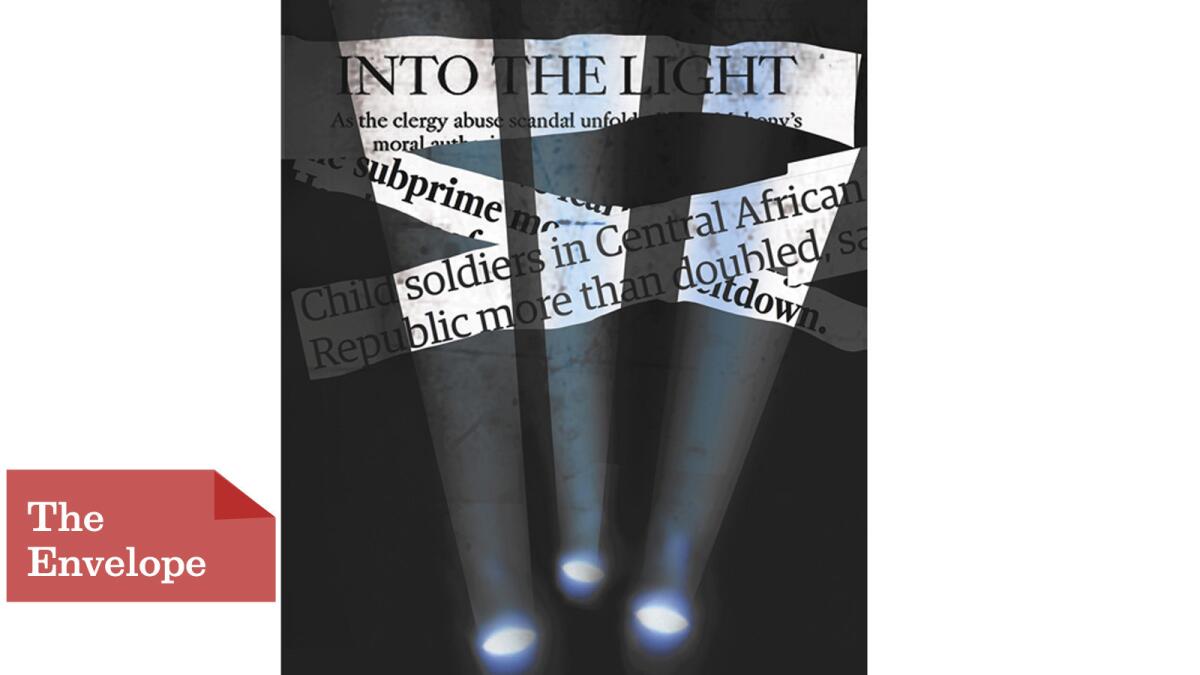
Topical features are seemingly everywhere … if not the top of the box-office chart.
- Share via
Movies that bear that “ripped from the headlines” stamp are particularly plentiful this awards season. From true stories mined from actual events (“The Big Short,” “Spotlight,” “Truth”) to dramas spinning off important current issues (“Chi-Raq,” “Beasts of No Nation,” “99 Homes,” “Freeheld”), topical features are seemingly everywhere … if not the top of the box-office chart.
“If you didn’t believe art was a part of the change, it would be hard to do it all,” says John Cusack, one of the stars of “Chi-Raq,” Spike Lee’s “Lysistrata”-inspired examination of the violence plaguing modern-day Chicago. “You’d just be making big-budget popcorn movies.
“I think satire and these things have a long tradition of giving some ballast to the conversation, helping you understand things in the way poets can help you understand things.”
See more of Entertainment’s top stories on Facebook >>
“Chi-Raq” takes a sometimes absurd approach to its topic, as does “The Big Short” as it looks at the 2008 economic collapse, but 2015’s other topical films play it straight. “Spotlight” is a favorite for top honors for its unsentimental account of the Boston Globe’s investigation of the Catholic Church’s sex abuse scandal. “Freeheld” adapts the true story of a terminally ill, lesbian police detective fighting for her domestic partner’s legal rights.
“Beasts” hauntingly tells of a boy forced to become a child soldier in an unnamed African country. Writer-director Cary Fukunaga wanted as ground-level a perspective as possible — through the eyes of a boy who begins the film happily trying to sell a broken TV as “imagination television.”
“I had to fight off some producers’ and other peoples’ notes: ‘Maybe we should put some text in front of it, explain the context,’” says Fukunaga, who had done not only academic, but shoe-leather research in Africa on the topic for years. “That was antithetical to what I was trying to do, to make it purposefully confusing — even if [the boy’s] battalion seems like the heroic one at first, fighting against oppression, they commit just as many atrocities as the other faction. And that is really what happens in war.
“You’re reading right now, we were championing the Kurds in Syria just [a few] months ago; now we’re discovering they’re leveling other Syrian towns once they capture them from [Islamic State], which equates to war crimes. So one side or another, they’re going to do absolutely terrible things in war. War, by nature, is brutal and disgusting.”
James Vanderbilt’s “Truth” is adapted from “60 Minutes II” producer Mary Mapes’ book about the George W. Bush Air National Guard service story that ended Dan Rather’s CBS News career 10 years ago.
“The audience reaction has been gratifying,” says Vanderbilt. “People have been saying, ‘I had no idea this is what was going on. I had no idea how this worked.’”
Rather himself says, “It asks the question, ‘What kind of journalism will we have, going forward?’ It’s a story where journalism intersects with big business and big politics. It’s a story of inquiry and betrayal.”
Watch Q&As with the ‘Truth’ cast and crew

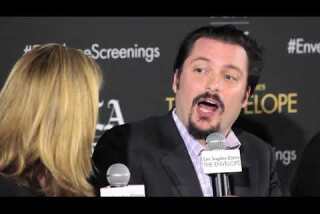
'Truth:' Casting Robert Redford as Dan Rather
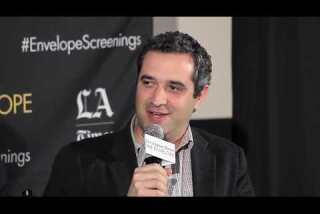
'Truth:' Why tell Mary Mapes' story

'Truth:' Dennis Quaid remembers Lt. Colonel Roger Charles

'Truth:' Talking corporate America and journalism
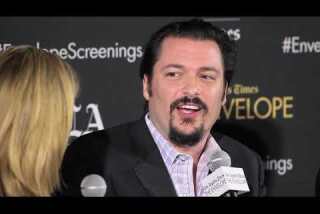
'Truth:' Casting Cate Blanchett in the lead
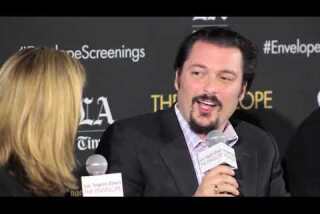
'Truth:' Acknowledging CBS' resistance to the film
Not all the films tackle topics so politically charged. “The Danish Girl” touches on transgender issues in its telling of one of the first sex-reassignment surgeries, in the 1920s. And “Ex Machina,” in the metaphorical way science fiction can, addresses leading-edge ethical and technological questions raised by our growing dependence on computers and the possible threat artificial intelligence might pose.
“Ex Machina” writer-director Alex Garland says in consulting with experts, “What I found was the people in that world were ahead of the game in being worried about this stuff. The fears were along the lines of humans being superseded by machines. I wouldn’t say they thought it was likely, but they thought it was possible.”
“The Big Short” and “99 Homes” approach the 2008 financial collapse from different angles. The insane greed and shady maneuverings that primed the disaster get a light touch in Adam McKay’s adaptation of Michael Lewis’ nonfiction book in the former; the latter affords an up-close and personal view of the devastation on the lower and middle economic classes in Ramin Bahrani’s gut-punch drama.

Kenneth Turan reviews “The Big Short,” starring Steve Carell, Ryan Gosling, Christian Bale and Brad Pitt. Video by Jason H. Neubert.
Bahrani says, “My hope in the screenplay was that all of us who were impacted by this directly or indirectly, or those of us who read the headlines and had an emotion but we didn’t know what it was, this would put a face on that. This would raise a lot of questions, was my hope — as one of my heroes, [John] Steinbeck, did in ‘The Grapes of Wrath’ — just to put a face on all of this.
“I’ve got countless emails from people who’ve been evicted, saying, ‘Thank God you finally told my story because people thought I was crazy when I would tell them what was happening.’
“It’s just showing what I saw and asking questions and hoping that the viewers, the writers, the journalists, the people in Congress — somebody somewhere may see it and start to find solutions.”
But can movies that actually hope to educate about complex financial instruments draw an audience? In just a few weeks of release, “The Big Short,” a comedy with an all-star cast, has pulled in nearly $22 million domestically, but “Beasts,” “Chi-Raq,” “Danish Girl,” “Freeheld,” “99 Homes” and “Truth” had grossed an average of less than $1.5 million. “Beasts,” the box-office prospects of which were hampered by its simultaneous Netflix release and its bare-knuckles approach to disturbing subject matter, has a Rotten Tomatoes critics’ rating of 91, an audience rating of 93 — and a total theatrical gross of less than $91,000.
“Big Short” author Lewis says of the film, “My hope is enough people see it and talk about it that it just keeps this conversation about what to do about the financial world at a boil … to keep it on people’s minds in a way that could be useful when legislation comes up to change legislation that constrains the banks. It could have real-world effects.”
“Ultimately, it’s got to come down to people hitting the streets,” says Cusack. “I don’t think change comes from the top down, ultimately. Bertolt Brecht said, ‘Art isn’t a mirror to hold up to [society]; it’s a hammer with which to shape it.’ It’s not the solution, but it’s part of it.”
Follow The Times’ complete coverage of the Golden Globes and Oscars
More to Read
From the Oscars to the Emmys.
Get the Envelope newsletter for exclusive awards season coverage, behind-the-scenes stories from the Envelope podcast and columnist Glenn Whipp’s must-read analysis.
You may occasionally receive promotional content from the Los Angeles Times.











